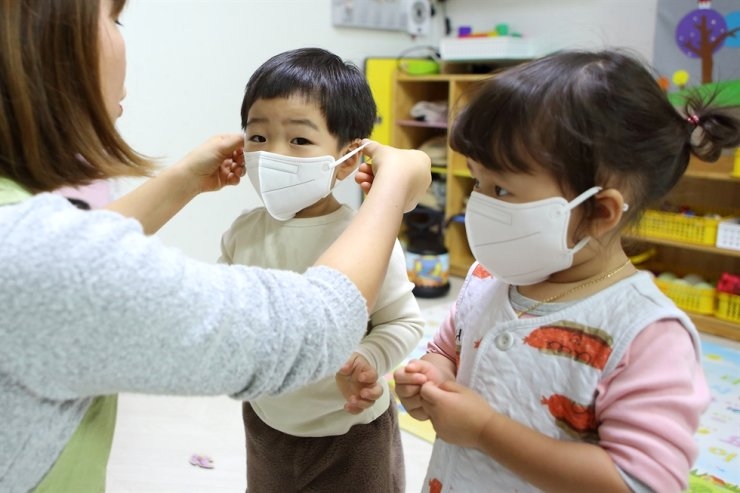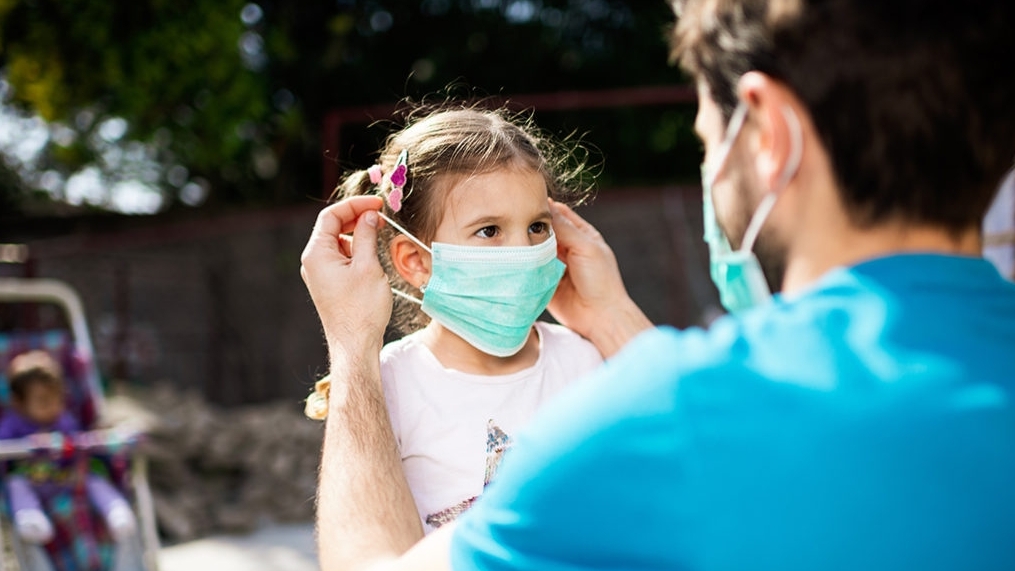Kawasaki Disease: Causes, symptoms, diagnosis & treatment, link to coronavirus?
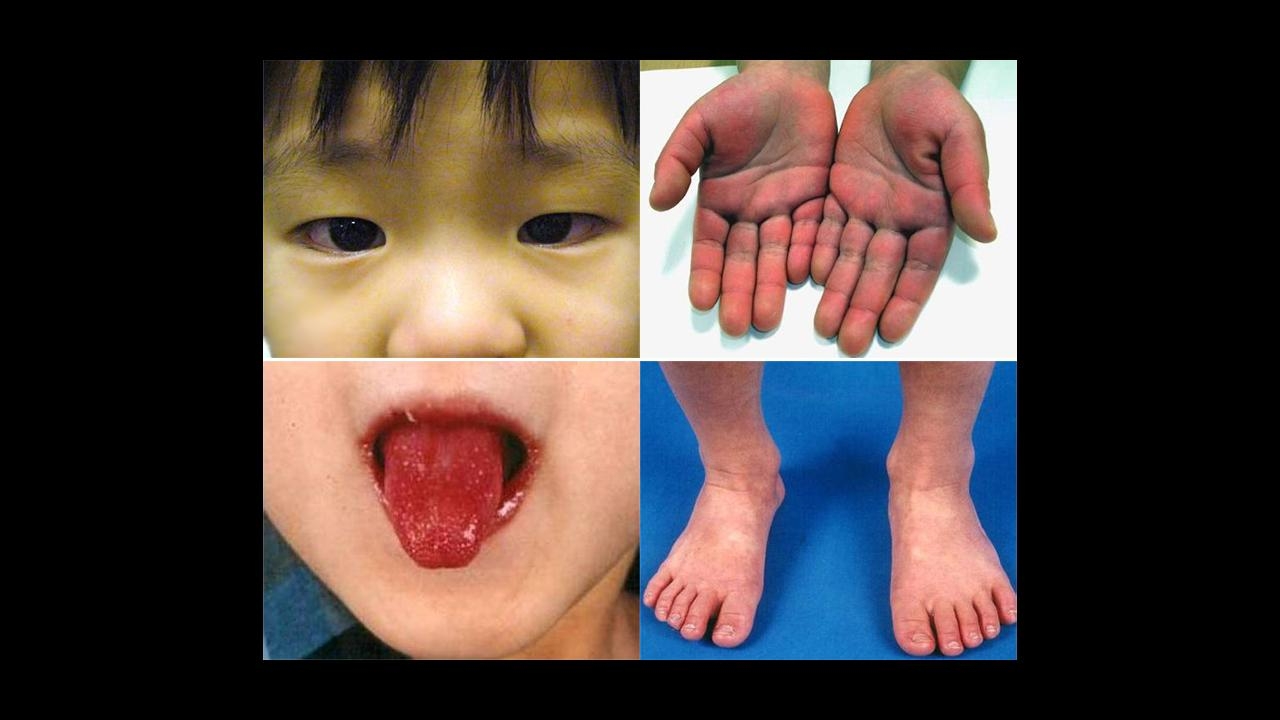 |
| Fifteen kids in New York City (U.S) have been hospitalized with symptoms consistent with Kawasaki disease |
Acccording to The Cut and NYT, doctors around the world have noticed an uptick in children ill with Kawasaki disease, a rare childhood illness that causes inflammation of blood vessels. So far, the number of cases of Kawasaki disease has been small, but it’s concerning, given that many of the children hospitalized for the disease also tested positive for the coronavirus.
Neither the World Heath Organization nor the Centers for Disease Control and Prevention has verified a link between Kawasaki disease and coronavirus, but the WHO is “urgently” investigating the possibility, as are state officials in New York, where at least 15 children have been hospitalized with symptoms associated with the disease.
Demetre Daskalakis, MD, deputy commissioner of The New York City Health Department's Division of Disease Control, put out a public letter to his colleagues Monday warning of the illnesses. "A pediatric multi-system inflammatory syndrome, recently reported by authorities in the United Kingdom, is also being observed among children and young adults in New York City and elsewhere in the United States," Dr. Daskalakis wrote.
But what, exactly, is Kawasaki disease, and how is it linked to the Coronavirus outbreak?
10 Must- Know facts about Kawasaki disease so far:
What is Kawasaki disease?
Kawasaki disease, also known as Kawasaki syndrome, is a form of vasculitis, a family of rare disorders characterized by inflammation of the body’s blood vessels. According to the CDC, the clinical symptoms of Kawasaki disease include “fever, rash, swelling of the hands and feet, irritation and redness of the whites of the eyes, swollen lymph glands in the neck, and irritation and inflammation of the mouth, lips, and throat.” According to the National Institutes of Health, in the U.S. and other Western countries, Kawasaki disease occurs annually in approximately one in 10,000 children under 5, though recent infections have included children up to age 15.
According to the Mayo Clinic, Kawasaki disease is usually treatable with intravenous immunoglobulin and aspirin, and most children make a full recovery. However, if left untreated, it can lead to heart disease or other serious heart complications that can be life-threatening.
The first case of Kawasaki disease
Kawasaki disease was first characterized in the late 1960s and was previously called “mucocutaneous lymph node disease.”
“The disease was first described in Japan by Tomisaku Kawasaki in 1967, and the first cases outside of Japan were reported in Hawaii in 1976,” according to the CDC. “Clinical signs include fever, rash, swelling of the hands and feet, irritation and redness of the whites of the eyes, swollen lymph glands in the neck, and irritation and inflammation of the mouth, lips, and throat.”
What are the signs and symptoms of Kawasaki disease?
Aside from the fever and the rash, Dr. Segal says initial symptoms may include red eyes, due to blood vessel inflammation in the whites of the eyeballs. Other warning signs: red lips, changes in lymph nodes, and a “strawberry-colored tongue that looks swollen and bumpy,” he notes.
In the second phase of the illness, the skin on patients' hands and feet might peel, and they may experience joint pain, diarrhea, and vomiting, Mayo Clinic reported.
“There’s no cure. It usually resolves in a month or two,” Dr. Segal says, adding, "There are cardiac manifestations we see in adults when they've had it as kids." The blood vessel inflammation weakens some arteries, he explains. Later, the arteries could bulge, leading to an aneurysm.
Other complications can include inflammation of the heart muscle and heart valve problems, reports the Mayo Clinic.
According to CBSlocal, symptoms include:
- Fever
- Abdominal pain
- Vomiting
- Rash
- Swollen lymph nodes
- Inflammation in the eyes
Dr. Barbot described the Kawasaki-like disease as follows:
“Generally, children present with prolonged high fevers, several days of very high fevers. They can also have very red eyes, very brightly colored lips. One of the hallmarks that we see is what we call a strawberry tongue, which means their tongue is very bright and red,” said Dr. Barbot. “The other symptoms children can have are a rash, they can have swelling of their hands and feet.
“Generally, if the condition is identified early, there is definitive treatment, and there are typically no long term consequences,” she continued. “However, if the syndrome is not identified early, there can be long term consequences, most commonly related to ongoing heart problems.”
| New York City’s health commissioner Oxiris Barbot, MD, said in a statement: “if your child has symptoms like fever, rash, abdominal pain or vomiting, call your doctor right away.” |
 |
The symptoms of true Kawasaki disease (not associated with Coronavirus)
- fever for at least 5 days;
- four of the following five features: changes in extremities (redness or swelling of palms of hands or soles of feet early in the disease, and peeling of skin on these regions later in the disease); diffuse rash, often starting on the trunk; conjunctival injection (ie, redness of the eyes) without any discharge; redness or cracking of the lips/tongue; swollen lymph nodes in the neck, often only on one side;
- and exclusion of other causes.
These symptoms arise because medium-sized arteries become inflamed. In severe cases, patients with KD can have low blood pressure and shock — and this severe manifestation seems to be quite prevalent in the series of cases that are now being reported in Europe and in the United States that may be related to SARS-CoV-2 infection, Healio reported.
The link between Kawasaki disease and Coronavirus?
After a small but growing number of children have been hospitalized with symptoms of Kawasaki disease and have also tested positive for coronavirus, health officials are investigating the link between the two. In the U.K., at least 12 children have required urgent care due to symptoms linked to the coronavirus, many of whom have been confirmed to have Kawasaki disease, which can resemble toxic shock syndrome. Health officials in Italy, Spain, Switzerland, Belgium, and France have also reported a rise in cases resembling toxic shock syndrome and Kawasaki disease.
New York City has also reported a concerning rise in hospitalizations due to Kawakasi disease: According to the New York Times, at least 15 children between the ages of 2 and 15 have been hospitalized with symptoms associated with Kawasaki disease and toxic shock syndrome in the past three weeks. According to a bulletin from the state health department, none of the children have died, but most required “blood pressure support,” and five needed ventilators. Many of these patients also tested positive for COVID-19 or its antibodies, which is alarming given that children typically have milder cases of the virus. However, this isn’t always the case: According to the Intercept, as of April 30, 20 children in the U.S. who tested positive for COVID-19 have died.
“That’s the million dollar question,” Dr. Segal says. From what officials understand, “this is a rare complication in the pediatric population that they believe is related to COVID-19,” Howard A. Zucker, MD, the New York State health commissioner, told NYT.
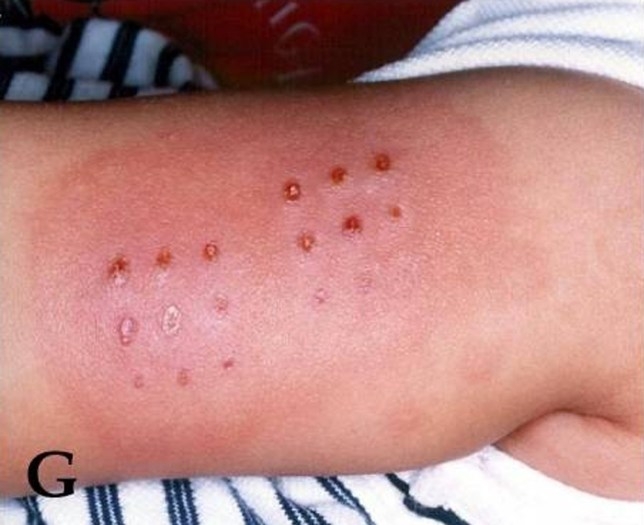 |
How exactly it's related to coronavirus is still unclear. Both Kawasaki and the coronavirus cause inflammation of multiple systems within the body, Dr. Segal notes. Forbes notes that some researchers believe that Kawasaki is triggered by a viral infection, even a common cold, so it's possible that the patients are first contracting COVID-19 and then developing Kawasaki disease. But at this point, that's speculation.
“Even though the relationship of this syndrome to COVID-19 is not yet defined, and not all of these cases have tested positive for COVID-19 by either DNA test or serology, the clinical nature of this virus is such that we are asking all providers to contact us immediately if they see patients who meet the criteria we’ve outlined,” New York City’s health commissioner Oxiris Barbot, MD, said in a statement she released.
| According to NJ, Jane C. Burns, professor and director of the Kawasaki Disease Research Center, issued a statement last week about the possible connection between the disease and the coronavirus. “We have long suspected that there may be different triggers for KD based on individual genetics,” Burns said in the letter to parents of children with the disease. “The emergence of this new problem suggests that the new coronavirus, SARS-CoV-2, may be a trigger for some children to develop KD.” |
15 kids hospitals with mystery illness, possibly Kawasaki disease - Coronavirus link under investigation
All of the patients — who range in age from 2 to 15 — have fevers. More than half reported having a rash, abdominal pain, vomiting, or diarrhea, an alert from the city’s department of health said. Most of the children are exhibiting characteristics of Kawasaki disease otherwise knowns as mucocutaneous lymph node syndrome, which causes inflammation in the walls of some blood vessels in the body.
Officials describe the illness as a “pediatric multi-system inflammatory syndrome potentially associated with COVID-19.”
Some of the sick children have been admitted to pediatric intensive care units with more than half requiring cardiac support and five being placed on ventilators. None have died.
No cases have been reported in New Jersey as of Tuesday morning, according to health department officials. “However our epidemiologists are speaking to healthcare facilities to gather information on any related illnesses,” a statement from the department said.
Kawasaki disease or syndrome is rare and typically affects children under the age of 5, according to the federal Centers for Disease Control.
How can you treat Kawasaki disease?
Although Kawasaki can’t be officially “cured,” it’s generally treatable with aspirin or similar fever-reducing drugs. Sometimes, intravenous immunoglobulin is needed to bring down inflammation, Dr. Segal says.
Dr. Daskalakis emphasized in his letter that early diagnosis and treatment of patients who have some or all of the symptoms of Kawasaki disease should be a priority for doctors. Catching it early may help prevent the organ damage and other long-term complications that can arise.
| More than 24,000 people in New York state have died of COVID-19 related causes, the most of any state in the country. |
Regardless of a coronavirus test result, the health department has urged doctors with patients under 21 years old and symptoms consistent with Kawasaki to immediately report those suspected cases to the health department. Doctors are also instructed to immediately refer such patients to a "specialist in pediatric infectious disease, rheumatology, and/or critical care."
Only severe cases may have been recognized so far, according to the health department. "Early diagnosis and treatment of patients meeting full or partial criteria for Kawasaki disease is critical to preventing end-organ damage and other long-term complications."
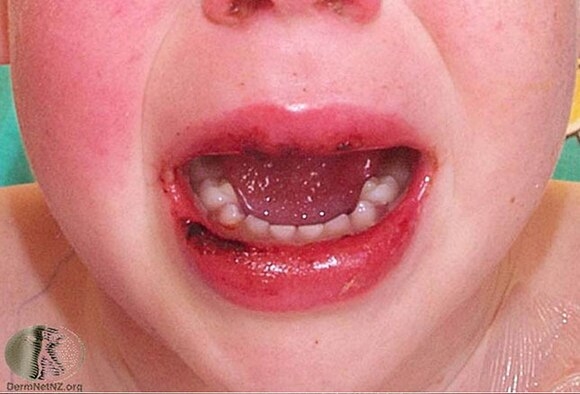 |
| Kawasaki disease signs |
What are health officials saying?
Right now, health officials are still investigating the possible link between Kawasaki disease and COVID-19.In a news briefing last week, Dr. Adam Finn, chair of the WHO’s European Technical Advisory Group, said the WHO was aware of the “newly described syndrome” presenting in Europe and North America, adding that they are “urgently conducting a surveillance study in the United Kingdom to establish what is going on.” Additionally, state officials in New York are investigating the syndrome.
“Even though the relationship of this syndrome to Covid-19 is not yet defined, and not all of these cases have tested positive for Covid-19 by either DNA test or serology, the clinical nature of this virus is such that we are asking all providers to contact us immediately if they see patients who meet the criteria we’ve outlined,” New York City health commissioner Dr. Oxiris Barbot told the Times in a statement.
On Wednesday afternoon, New York City mayor Bill de Blasio relayed this information in an “urgent health alert” for parents and doctors: “If your child is experiencing a persistent fever, rash, abdominal pain or vomiting, call your doctor right away,” he tweeted, elaborating that the NYC Department of Health and Mental Hygiene has instructed all city health providers to “immediately” report any patients under 21 years of age who exhibit symptoms associated with Kawasaki disease.
How common is it?
While U.K. health secretary Matt Hancock said at a daily press briefing that the rise in cases has left him “very worried,” other health officials are stressing that at this point, the complication appears to be very rare.
“This is not something people should be panicking about,” Dr. Liz Whittaker, a member of the Royal College of Paediatrics and Child Health’s allergy, immunology and infectious diseases committee, told the Guardian.
“So far, from what we understand, this is a rare complication in the pediatric population that they believe is related to Covid-19,” New York State health commissioner Howard Zucker told the Times. “We are following it very closely.”
First cases with COVID-19 concern appeared in Europe
According to USA Today, the condition was first reported by doctors in Britain, Italy and Spain in late April. Britain’s Paediatric Intensive Care Society issued an alert noting there had been an increase in the number of children with “a multi-system inflammatory state requiring intensive care” across the country.
The group said there was “growing concern” that either a COVID-19 related syndrome was emerging in children or that a different, unidentified disease might be responsible.
Spain’s Association of Pediatrics recently made a similar warning, telling doctors that in recent weeks, there had been a number of school-age children suffering from “an unusual picture of abdominal pain, accompanied by gastrointestinal symptoms” that could lead within hours to shock, low blood pressure and heart problems.
These individuals, from six to 95-year-old, fought the coronavirus and won.
In Italy, Dr. Angelo Ravelli of Gaslini Hospital and a member of the Italian Paediatricians' Society, sent a note to 10,000 colleagues raising his concerns. He and his team reported an unusual increase in the number of patients with Kawasaki disease in regions of Italy hit hard by the pandemic, noting some children had COVID-19 or had contacts with confirmed virus cases.
Some possible cases have also been reported in France and Belgium.
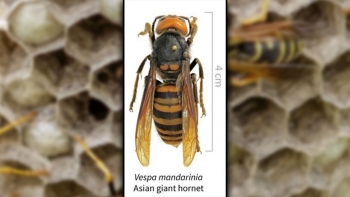 | 13 must-know facts about ‘murder hornets’ The so-called "murder hornets" has been making global headlines after The New York Times detailed an invasion of Asian giant hornets in Washington State. The Washington ... |
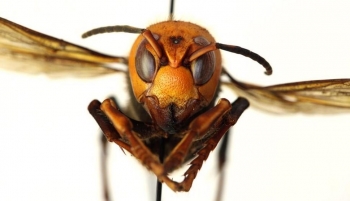 | 'Murder hornets' - danger to the average person is low The murder hornets made their way to the U.S. for the first time.The hornets are “probably not going to murder someone … don’t panic”, USA Today ... |
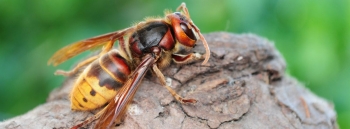 | Facts about 'murder hornets' Murder hornets from Asia that measure up to 2 inches long have been found for the first time in the U.S. Ehrlich Pest Control shares some ... |
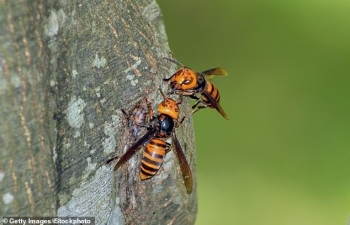 | What are ‘murder hornets’? Asian hornets, known as ‘murder hornets’, the New York Times recently reported, have been spotted in the United States and Canada for the first time, ... |
Recommended
 World
World
India strikes back at terrorists with Operation Sindoor
 World
World
India sending Holy Relics of Lord Buddha to Vietnam a special gesture, has generated tremendous spiritual faith: Kiren Rijiju
 World
World
Why the India-US Sonobuoy Co-Production Agreement Matters
 World
World
Vietnam’s 50-year Reunification Celebration Garners Argentine Press’s Attention
Popular article
 World
World
"Will continue offering our full support to Indian govt": US FBI Director after Pahalgam attack
 World
World
"Great Leader": JD Vance Lauds PM Modi During His India Visit
 World
World
Trump’s Tariff Pause: A Strategic Move from “The Art of the Deal”?
 World
World




